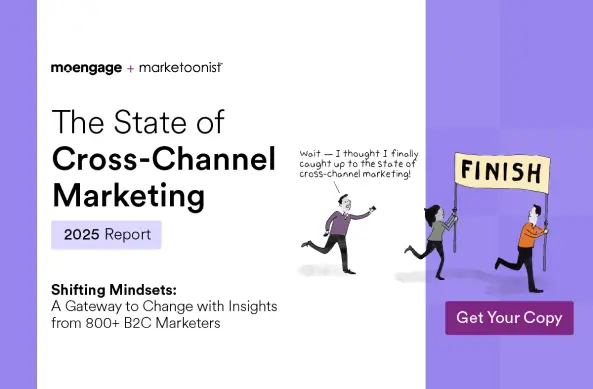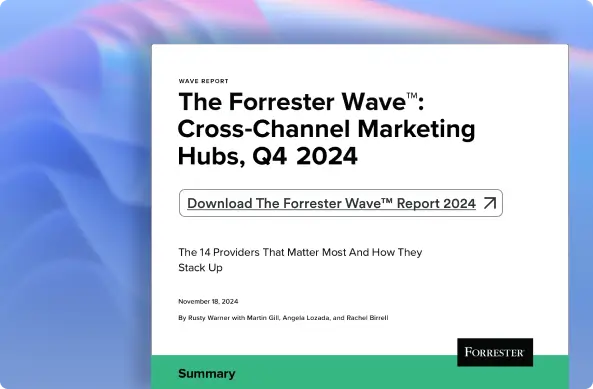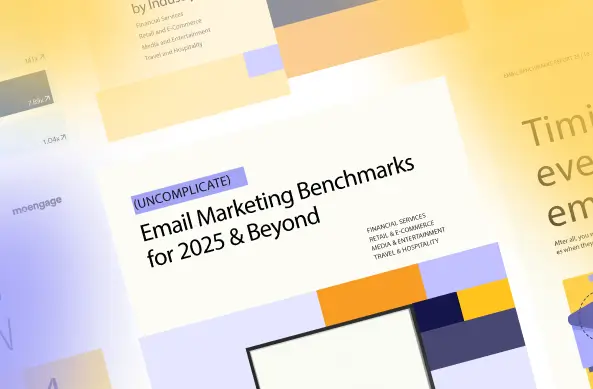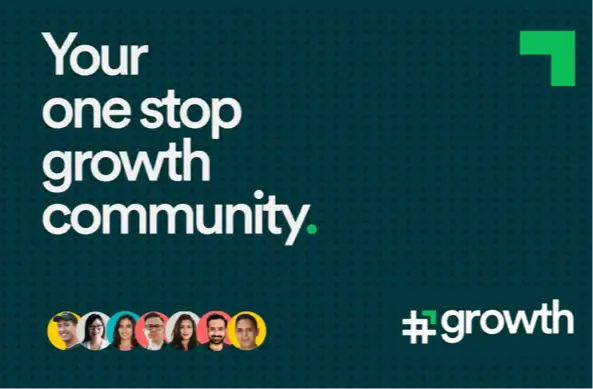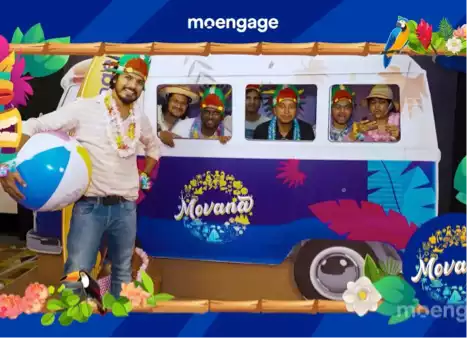How to Use WhatsApp for Advertisements in 2025
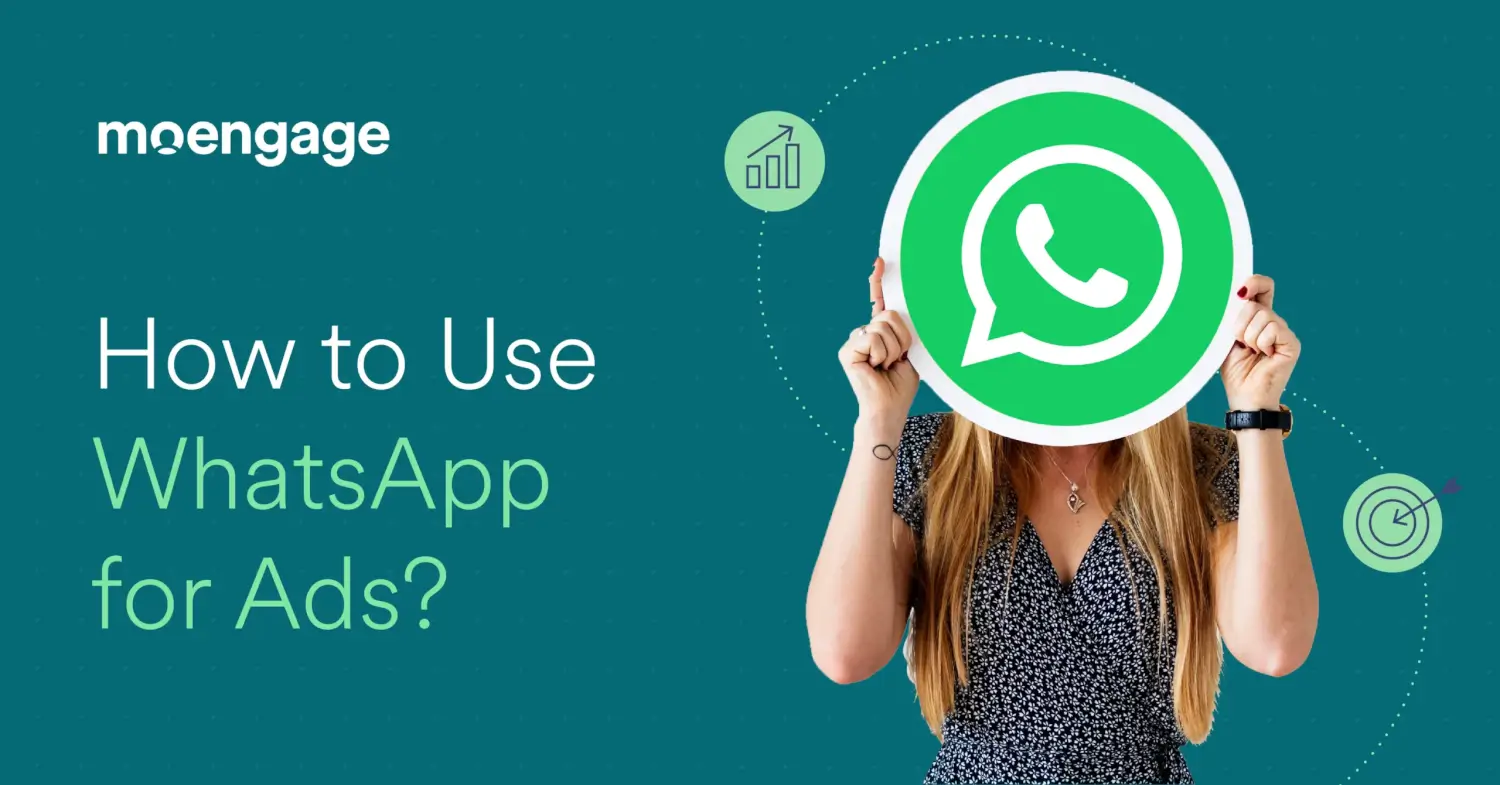
Reading Time: 9 minutes
| 🔍 Download Ebook here to understand how to use Whatsapp Business for marketing and conversational commerce. |
With more than 2 billion monthly active users, over 100 billion messages are sent on WhatsApp daily. That’s about 41.7 million messages every hour, 694,444 messages in a minute, and 11,574 messages per second. Not only are so many messages being delivered, but almost all of them are being read, with an open rate of 98% and a click-through rate of somewhere between 45-60%—which is more than 5X the CTR of other marketing channels.
High volume and high deliverability: If you’re a marketer, you know that getting both of these at the same time is challenging. But that’s what WhatsApp offers your brand! The ability to not only reach a lot of potential customers but also get them to interact with the brand. Today, your digital marketing and customer engagement plans are incomplete without a WhatsApp marketing strategy.
| Did you know that personalized WhatsApp campaigns can drive up to 3X the ROI? Check out your potential ROI using our WhatsApp ROI Calculator. |
Let’s dig a little deeper and see why WhatsApp stands out for advertising compared to other messaging apps, tips for your WhatsApp marketing campaigns, and examples of brands that have come up with impressive WhatsApp ad strategies!
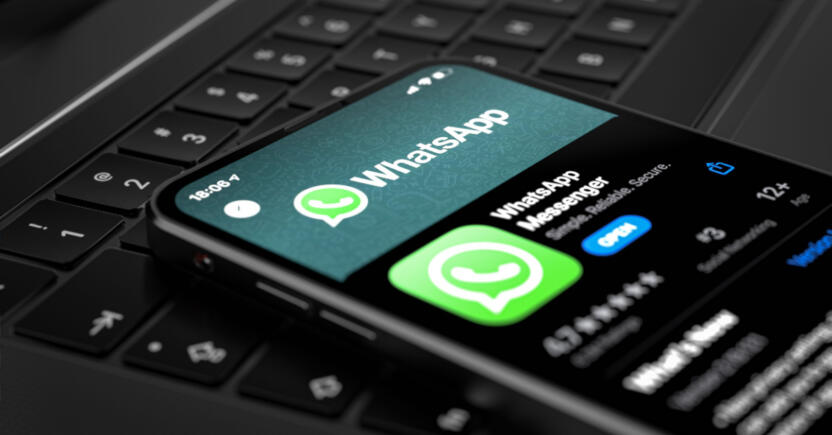
Why WhatsApp Ads Scores Over Other Channels
1. Most Used and Preferred Messaging App
A report by we are social and Hootsuite showed that of active social media users between the ages of 16 to 64, WhatsApp was rated as the favorite messaging app by the highest percentage of users, well ahead of Facebook Messenger and Instagram Direct.
With the highest distribution of all messaging apps worldwide, there are only 25 countries where WhatsApp is not the most used messaging app! Moreover, WhatsApp is globally well ahead of other messaging apps in terms of monthly average users as well.
But why is WhatsApp so popular?
Being a free app, the global appeal and the ease of use of the app, being available in several regional languages around the world are some of the factors that make WhatsApp such a widely used and accepted app.
Interestingly, while WhatsApp was initially not popular as a direct messaging app in the US and the UK, it has grown significantly in both markets, becoming the most-used messaging app among Android users in the US and among all users in the UK. The focus on security and end-to-end encryption is another crucial reason for its increased adoption in these markets.
2. The Takeoff of WhatsApp Business
WhatsApp introduced WhatsApp Business in 2018 to help small businesses keep in touch with their potential and existing customers. With over 300 million downloads, WhatsApp Business has transformed the way small businesses reach customers.
WhatsApp Business has helped marketing professionals reach better engagement levels with their customers and boost sales, with businesses seeing a 20% increase in conversions using WhatsApp Business.
The WhatsApp Business API has allowed larger companies to leverage WhatsApp for their marketing campaigns as well, sending over 100,000 WhatsApp marketing messages in a go.
3. Highest Levels of Deliverability
An average user opens WhatsApp about 25-30 times daily, opening most of the messages they receive, including promotional ones. This is why WhatsApp boasts of high open and click-through rates.
The WhatsApp Business API facilitates an almost 100% delivery rate, making sure that the non-delivery of messages does not hamper the effectiveness of your WhatsApp marketing campaign.
4. Leader of the C-Commerce World
Conversational Commerce is commerce carried out through conversational platforms, focusing on giving the customer a personalized experience. The stats indicate that WhatsApp and WhatsApp Business are leading the C-Commerce world. Many businesses have successfully used WhatsApp messaging to acquire more customers and sell their products and services.
5. Integration With E-commerce and Social Media Platforms
WhatsApp Business API allows integrations with E-commerce platforms like Shopify to simplify selling, keeping track of orders, and sending reminders. This makes the buying journey of a customer very smooth, increasing the chances of them making a purchase.
You can also integrate the WhatsApp Business API with your Facebook business page and Instagram to receive messages directly from both platforms.
Tips for Creating Effective WhatsApp Marketing Campaigns
1. Content Is Key
When you create WhatsApp ads, it is easy to get drawn away by the volume of messages, being able to send millions of messages in one go, accompanied by any kind of multimedia like images, videos, and audio notes, among others. This can prompt you to send a lot of information within a short period, endangering quality.
While WhatsApp ensures high open and read rates, customers will engage with your ads only if they find them appealing and relevant to what they are looking for. In WhatsApp, it’s not about how many messages you send but about sending the right messages that can capture the customer’s attention!
WhatsApp ads of low quality can be detrimental to your brand since customers might not connect with your messaging, which, in turn, can even create the opposite effect!
2. Personalization Makes All the Difference
One of the most significant advantages of running a WhatsApp ad campaign is the ability to send personalized messages to your customers. Sending customized messages, based on your customers’ needs, can help increase engagement and keep the conversation going.
To send the right personalized messages, you must first compartmentalize your customers based on criteria like age, gender, area, language, etc.
Once you create these customer segments, it will be easy for you to create customized messages for each customer segment based on their needs.
3. Reaching Out in Local Languages
Customer communication is effective when your message is easily understandable by your customers. Sending WhatsApp messages in local languages can go a long way in making your personal messaging efforts more relatable to all its recipients.
Almost every WhatsApp ads manager platform allows you to send messages in local languages. Sending ads in regional languages can generate a higher return and increase relatability with your brand in the customers’ minds.
4. Respecting Customer’s Inboxes
For most customers, WhatsApp is a personal conversation space primarily used to communicate with those in their contacts.
While customers are open to the idea of brands communicating with them on this platform, it is important for brands to respect the personal space of the customers and refrain from bombarding them with too many messages and promotional content. Ensure that you message them only during business hours with just the most critical information that takes little of their time. Besides, the credibility of your WhatsApp Business account depends mainly on how you message your customers: whether you are spamming them or not and how frequently you reach out to them.
5. Collecting Enough Feedback
Brands might be using WhatsApp mainly to send ads and keep in touch with their customers, but they are also a convenient platform to collect customer feedback, especially for small businesses.
The high open and read rates work in favor of collecting feedback. The option of WhatsApp polls makes the customer’s task a lot easier, having just to choose one out of the given options.
This kind of direct feedback from your customers helps you streamline the quality of the product or service you provide and lets you know if your marketing campaign was a success.
6. Using the Right Tools
Many tools help with WhatsApp messaging management, allowing you to easily send bulk messages to your customer’s WhatsApp accounts and providing other features like multi-language functionality, automated messages, scheduled ads, etc.
Some of these tools also provide the option to integrate WhatsApp Business API with your social media accounts, helping you manage the messages you receive on these accounts. Some businesses might have an active Facebook page, and such integrations can make their messaging efforts much more comprehensive.
With many kinds of WhatsApp tools with different features available in the market, it’s essential that you pick a tool based on the goals of your marketing campaign. Choosing the right tool can completely change how you use WhatsApp for marketing, ultimately boosting sales.
7 Brands With Impressive Messaging to Reach Out to Customers Through WhatsApp
1. The Financial Times
Back in 2019, The Financial Times, known for its long-form, subscription-only content, came up with a WhatsApp ads strategy that resulted in many conversions. They started using WhatsApp groups to send free articles every day.
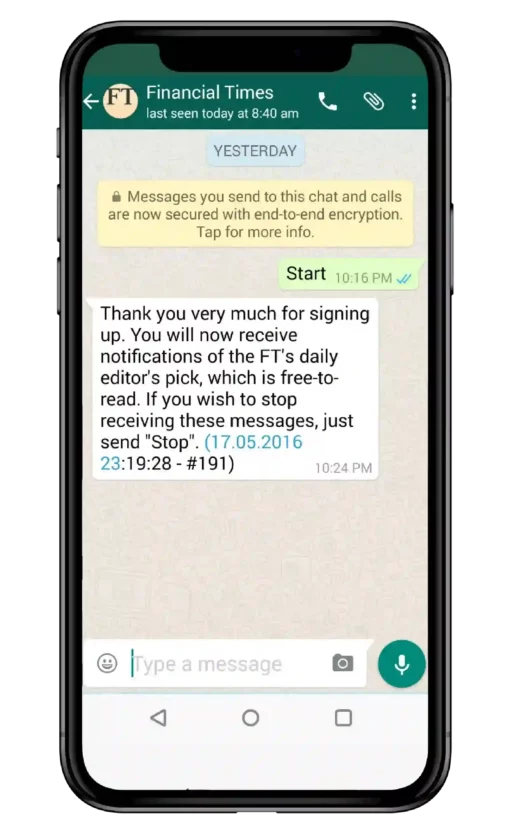
The strategy was to deliver free articles daily to customers who would send a WhatsApp chat message to FT’s WhatsApp Business account. They soon discovered that though FT’s audience was much smaller, it was more engaged with the content and more likely to subscribe than customers on other online platforms. They also saw that customers who clicked a Financial Times link on WhatsApp were 40% more likely to return to the site within three days than those who clicked their links on other social channels.
2. Hellman’s
Mayonnaise brand Hellman’s decided to use WhatsApp to give their Brazilian customers a customized experience. Customers were asked to take photos of the contents of their refrigerators and send them so that chefs could offer tips on what to make with the ingredients.
While they could access this campaign via other social media sites, WhatsApp was the most preferred platform because it enabled a much more direct and personal conversation.
The campaign became a huge success, with 99.5% of customers saying they were satisfied with the service. The same campaign was then launched in Uruguay, Chile, and Argentina.
3. Clarks
Clarks, a UK-based shoe store and manufacturer, wanted to tell its customers about the brand’s history and how far it’s come, and WhatsApp seemed the right platform to do this.
Clarks started an interactive storytelling campaign to promote its popular Desert Boot, using WhatsApp to connect customers with ‘key figures from subcultures of the past 65 years’.
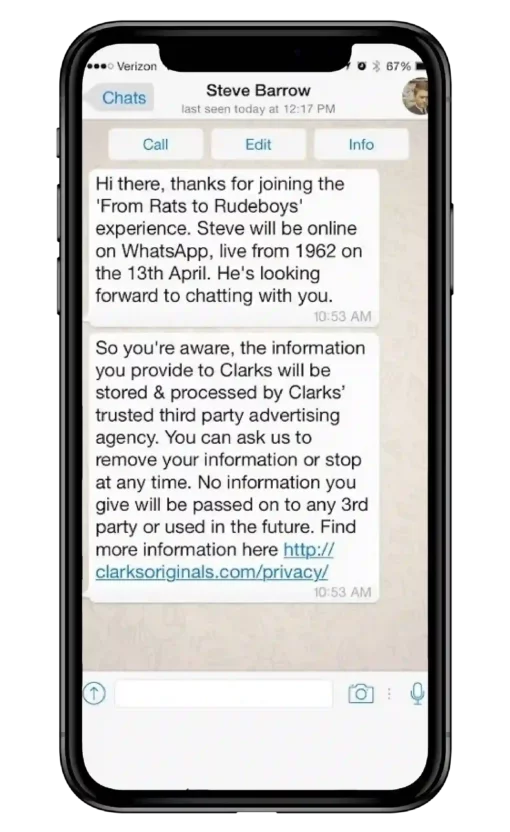
This involved live-chatting with three characters with links to the Desert Boot and its place in history, taking customers on a journey across time back to 1960s Paris, the Mod era, and the Reggae generation of Jamaica.
4. KLM
KLM Royal Dutch Airlines of the Netherlands uses WhatsApp to send their customers flight alerts and any other important information they might need.
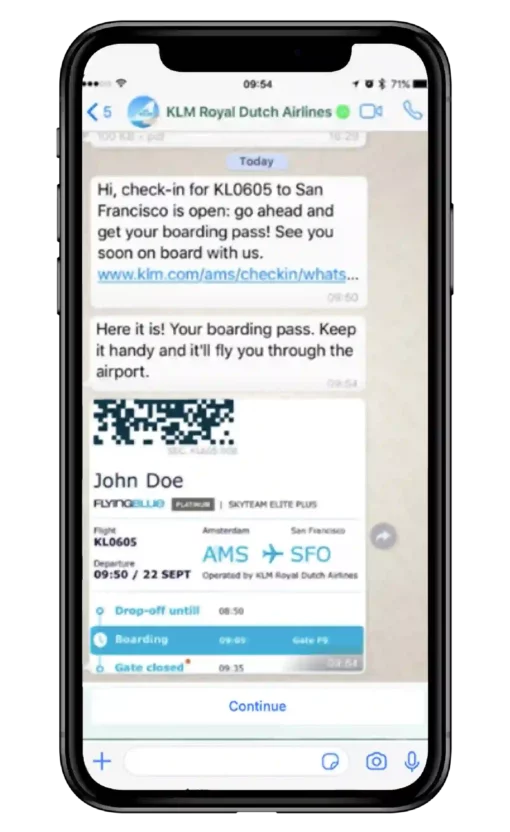
Claiming to be the first airline with a verified WhatsApp Business account, KLM sends customers the boarding pass, flight status, and check-in notifications on their WhatsApp accounts.
The airlines made sure to take the customer’s consent for this, with WhatsApp users having the option to enable WhatsApp alerts while booking. With a human agent always ready to provide further customer support via WhatsApp, KLM ensures that escalations are always handled smoothly.
5. Flipkart
Indian E-commerce giant Flipkart has been at the forefront of using WhatsApp and other conversational platforms to promote its brand and to push different promotions and discounts on its website.
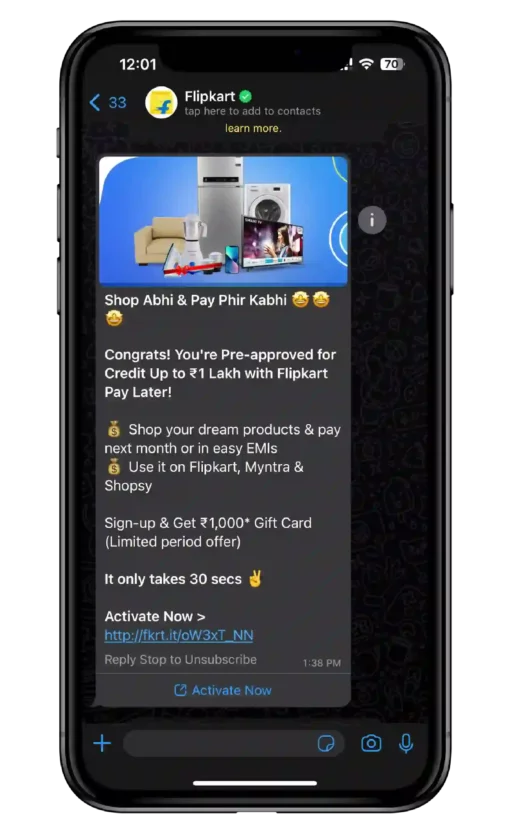
With the ‘Buy Now, Pay Later’ model kicking off in the Indian market, Flipkart has been sending thousands of customers WhatsApp messages about its ‘Flipkart Pay Later’ feature, enabling customers to make a purchase and then pay at a later date.
To nudge customers to use this feature, Flipkart also mentions a limited-period gift card for customers who sign up.
6. Forever 21
With over 500 outlets around the world, Forever 21 is a well-recognized brand, continuing to expand its presence across different countries.
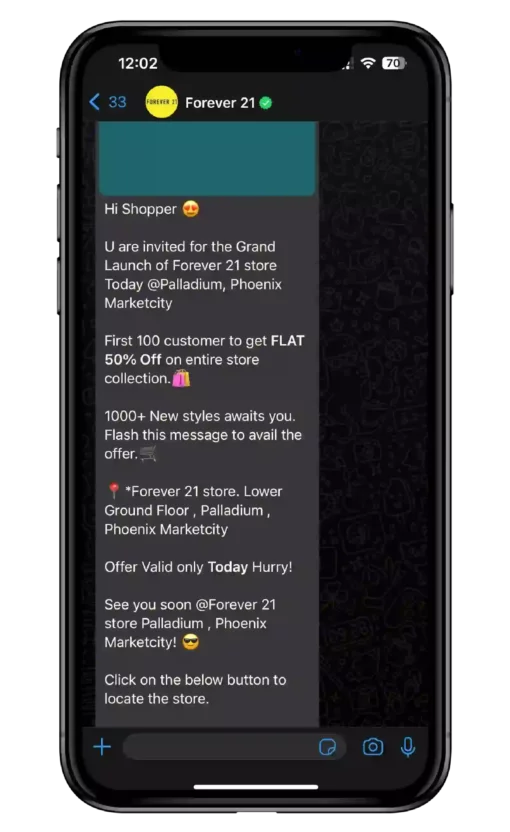
The brand used WhatsApp to build hype around one of its store openings in India. They sent broadcast messages to their customers in the area of the store opening, letting them know about their new store and inviting them to its opening.
They also created hype around it by letting customers know that the first 100 customers to shop at their new store get a flat 50% off, which is applicable to their entire store’s collection.
7. Swiggy
WhatsApp sees the highest usage levels during popular holidays and festivals, with customers sending and responding to greetings from their friends and family. Swiggy, a popular food delivery platform in India, used this to its advantage.
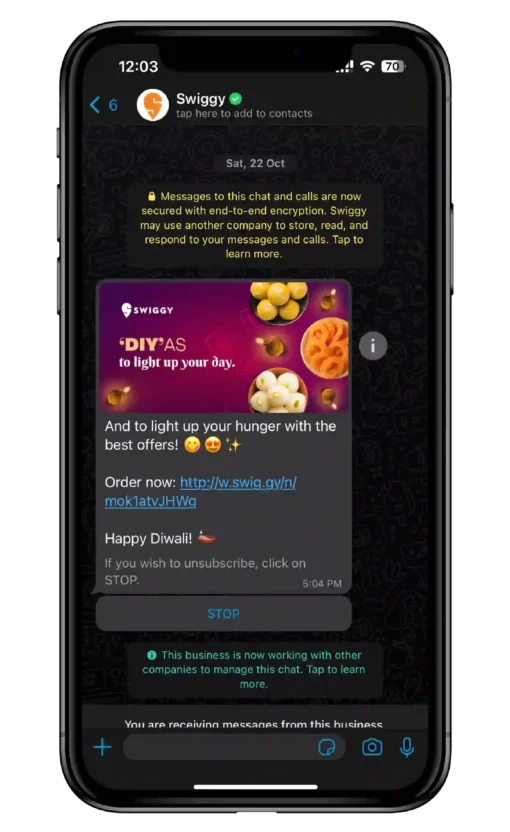
Swiggy sent messages with festival greetings on multiple occasions, wishing their customers and making them aware of special offers and discounts on their app.
And since many consumers use WhatsApp during festivals, these WhatsApp ads are bound to have caught the customers’ attention, prompting them to make an order.
Helping Businesses Save Time and Money
WhatsApp Business, as an app, is helping small and big brands tremendously and is expected to save businesses over $11 billion and 2.5 billion hours in productivity.
It has not only helped businesses save time but also altered the way brands think about their customers. Now reaching out to customers one-on-one has made ad placements more considerate of the customer’s needs, sending them only what they might like to see.
Getting the Best Out of WhatsApp for Ads
To get the best out of WhatsApp for ads, it’s vital for you first to define your marketing goals and set expectations accordingly of what you want to achieve through WhatsApp. For some brands, it might be about increasing brand awareness. For some other brands, their WhatsApp campaign might be focused on sending offers and promotions, while for others, it might be used mainly to collect feedback. Once you define your goals, it becomes easier for you to create related content and then develop distribution strategies.
While creating new strategies can excite your customers about your brand, following best practices can ensure your campaigns stay on the right track. Like any other type of advertising, it is the amount of attention and personalization you give to your customers that decides how successful your campaigns are or will be!

